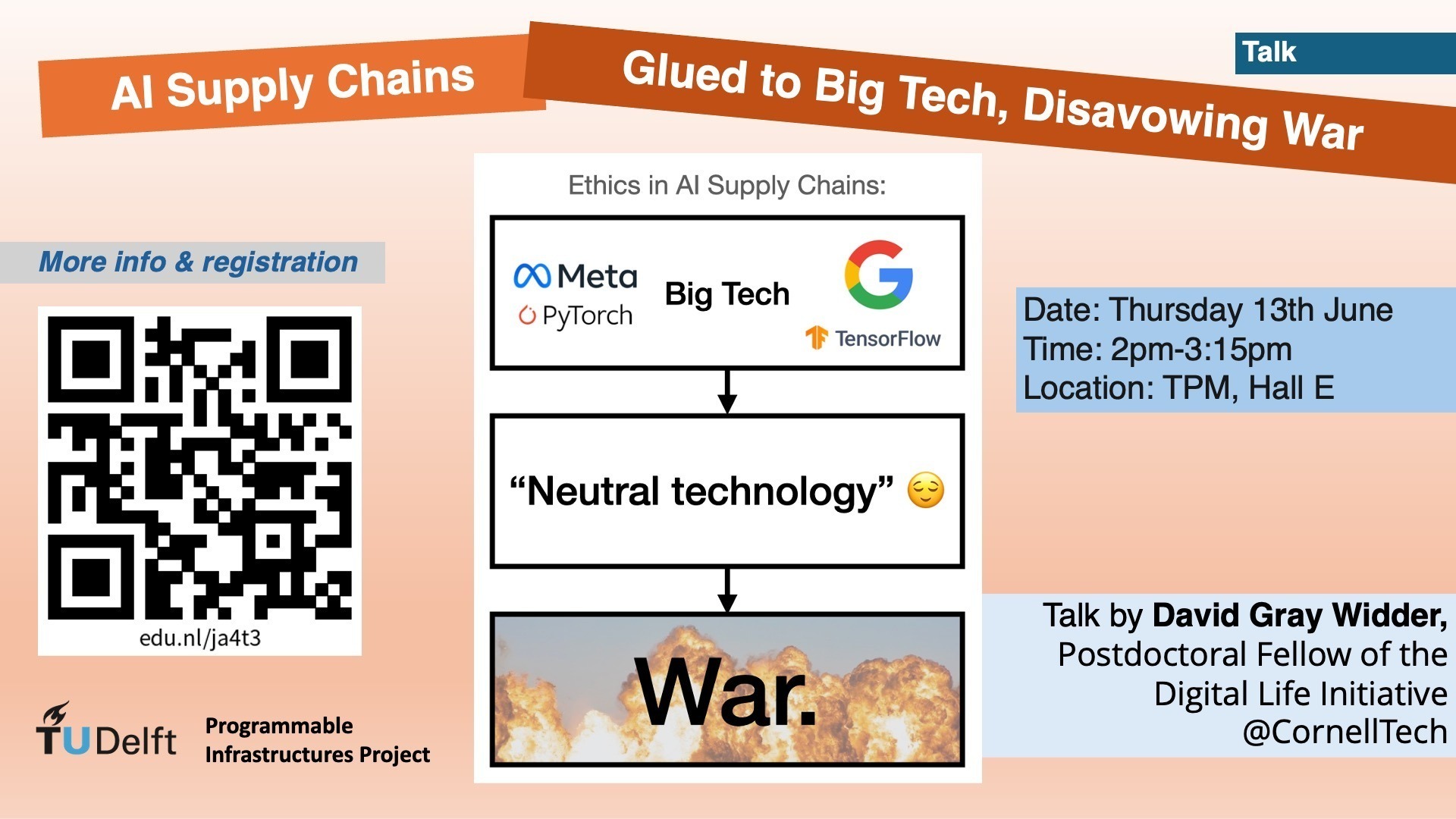
13 Jun 2024
AI Supply Chains: Glued to Big Tech, Disavowing War
Talk Abstract
Responsible AI guidelines ask engineers to consider how their systems might harm. However, contemporary artificial intelligence systems are built by composing many pre-existing software modules that pass through many hands before becoming a finished product or service. How does this shape Responsible AI practice? In interviews with 27 artificial intelligence engineers across industry, open source, and academia, I will show how engineers rarely see responsible AI to be within their agency, capability, or responsibility to address. In this talk, I will present how fractured and distributed AI supply chains shift responsibility for AI harms: to be always elsewhere, and thus nowhere. I will then present more recent work examining stops along this supply chain: how model cards delegitimize personal experience of AI harm, how the United States Department of Defense funds research into (anything but) "Basic" AI research, and on the incentives that leave academic AI researchers to merely play Big Techs' game
- Link to supply chain paper: https://journals.sagepub.com/doi/full/10.1177/20539517231177620
- Link to quantified epistemologies in AI ethics practice paper: https://arxiv.org/abs/2402.08171
- Link to incentives governing AI research paper: https://arxiv.org/abs/2310.07715
David Gray Widder (he/him) studies how people creating “Artificial Intelligence” systems think about the downstream harms their systems make possible, and the wider cultural, political, and economic logics which shape these thoughts. He is a Postdoctoral Fellow at the Digital Life Initiative at Cornell Tech, and earned his PhD from the School of Computer Science at Carnegie Mellon University. He has previously conducted research at Intel Labs, Microsoft Research, and NASA’s Jet Propulsion Laboratory. His recent research has been published in FAccT, CHI, CSCW, and Big Data & Society. His scholarly and activist work has been covered in Motherboard, the New York Times, MIT Technology Review, Axios, the Associated Press, Wired, and Fortune. David was born in Tillamook, Oregon, and raised in Berlin and Singapore. He maintains a conceptual-realist artistic practice, advocates against police terror and pervasive surveillance, and enjoys distance running.
For any questions, send an email to PIP-TBM@tudelft.nl
